Godfrey Townsend: Early Influences and Developing a Playing Style
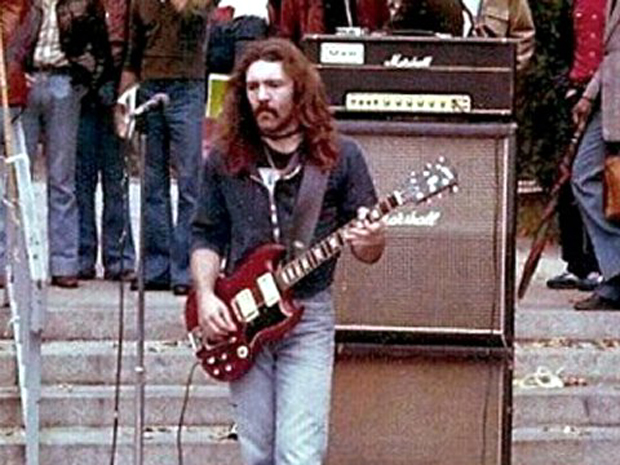
This week, I’m shifting gears and talking about some different topics than the past few weeks, which mostly dealt with some of the rock legends I’ve played with and how I got there.
I’m out on the road at the moment and will be mostly working “off the cuff” with the next few blog entries. When attempting to come up with an interesting and informative topic for other guitarists (young and old), I thought that certain players' influences would be cool to talk about.
For me, the ultimate guitar heroes back when I started bending strings were British guitarists Jimmy Page, Eric Clapton and Jeff Beck (who I refer to as the “holy trinity”) as well as America’s own Jimi Hendrix. (Notice that I’ve separated them by countries or origin; more on that later)
So, although at 10 years old, I was already listening to The Beatles and other AM radio “pop” music of the early '60s, the “real” influences for playing “lead” guitar didn’t come until I was about 13 and had been turned on to bands like The Jimi Hendrix Experience, Led Zeppelin and Cream.
Earlier on I was learning how to play chords and strum rhythm patterns by following along with my favorite “pop” singles of the day. My friend’s dad was in a wedding band and used to get us “fake” books for $5. For those of you who don’t know what it is, a “fake” book is basically a bootlegged (illegal) book of up to 100 pages of photocopied song sheets with words and music for all the standard pop songs. So, instead of purchasing each song separately (at about $1 each), you would get them all in one book for just $5.
So yes, although I wasn’t even a teenager yet, I was already breaking the law. Now that’s rock 'n' roll, baby (Just kidding, of course; crime doesn’t pay, kids). ANYWAY, some of the songs would have the little chord grids above the words and staves with the name of the chord (C, Am, G7, etc.) and little dots showing where to put your fingers.
Even though some the other song sheets only had the chord names, I had already memorized a lot of the chord positions. Of course, this took care of my rhythm skills and taught me how to play a whole bunch of songs.
Get The Pick Newsletter
All the latest guitar news, interviews, lessons, reviews, deals and more, direct to your inbox!
I was also fortunate enough to be born with a good “ear” for picking out melodies and solo lines at an early age. Since I was the one in the band able to do that, I became the “lead” guitarist in our little combo that played Girl Scout dances and other cornball functions at the time. I was also simultaneously taking piano lessons at a local music school which gave me a huge advantage with music theory.
OKAY. Let’s forge ahead to that topic of developing style and how influences of other players can contribute to that. Let’s start with the British guys or “holy trinity” (as mentioned above).
John Entwistle always told me that blues albums and 45’s were like “gold” to a British teen in the '60s. The reason I’ve segregated them as being from another country across the ocean is because it’s always been an enigma to me that a bunch of “white” English schoolboys (most of whom studied art in college) in the late 1950s, would be hankering after and mimicking the playing styles of a handful of old “black” guys from the Mississippi “Delta” and Chicago that originated from slavery and in the cotton fields in the late 1920s and 1930s.
Quite a difference of ethnic, cultural and social classes and influences, I would say, no? But somehow or other, these guys were attracted to learning and playing this style of music. It’s interesting to me to see how each one of these artists (both as individual guitarists and as entire bands) perceived and evolved with their own “spin” on this early blues influence.
When you think about it, bands like Cream, The Who, Led Zeppelin, Jethro Tull, Deep Purple and Pink Floyd all have a very different “versions” of so-called “blues-rock” that they have contributed to the world. Pete Townshend, Martin Barre, Ritchie Blackmore and David Gilmour have all been huge influences on me for the past 40 years.
So, back to the “holy trinity”…
Jimmy Page
Influences: Rockabilly and “skiffle” music. Check out Jimmy playing “Skiffle” music on TV at 13 years old here:
... Scotty Moore and James Burton (both of whom played with Elvis), acoustic folk a la Bert Jansche (See the youtube clip of Bert performing “Black Waterside”):
... B.B. King, Buddy Guy, Freddie King, Willie Dixon.
Eric Clapton
Influences: Chicago blues, Buddy Guy, Freddie King, B.B. King (Chicago blues was basically the same as Delta blues, except electric guitars replaced acoustic ones and the harmonica was amplified by means of a microphone). Jeez, Albert King even played a Gibson Flying V.
Jeff Beck
Influences: Rockabilly a la Cliff Gallup and Gene Vincent; the legendary Les Paul (lending to Beck’s “playful” and “bag of tricks” style); B.B King
Jimi Hendrix
Influences: B.B King, Muddy Waters, Howlin’ Wolf, Albert King, Buddy Guy, Wes Montgomery (Notice this influence in Hendrix’s slightly “jazzy” style and fluid playing of octaves in solos), Little Richard (adding to Jimi’s driving rock 'n' roll style and flamboyant stage antics).
Notice that there’s a “common” ground with B.B. King having influenced all of them. Those basic pentatonic blues licks were definitely common among all the British (and American) blues players. But each one of them had specifically different inflections and nuances that were their own.
I compare it to learning a language. First you learn a few key words like, “you, me, I, cat, dog, door, car, etc.” Then you learn phrases or complete sentences and you begin speaking the language. I began to understand that each one of these artists used a lot of the same phrases of this “language” with slightly different nuances and that, if I learned a few of the basic phrases, I could begin to play in the style of that particular guitar player. It got to the point where I could just listen to a solo and hear a particular riff and say to myself, “Oh, I know that one…it’s like this,” and I would be able to play it immediately.
When I bring myself back across the ocean to America, another style of blues that comes to mind that has been a huge influence on my playing is Texas blues, starting with Johnny Winter and the late, great Stevie Ray Vaughan. Other great players from the Texas area are Chris Duarte, Billy Gibbons, Doyle Bramhall and Charlie Sexton (Check out the Arc Angels CD from 1992; there's tons of great guitar music on that). There’s also Eric Johnson, but he’s in a whole 'nother genre that’s out of this world.
Texas blues is definitely different from Delta blues. For one thing, a lot of Texas blues is more up-tempo with mostly shuffle beats as opposed to the slow tempo of most Delta blues. As a matter of fact, most Delta blues was unaccompanied by drums.
Other players in general who I’ve taken a lot of my style from are Leslie West, Robin Trower, Gary Moore and Steve Morse.
I’ve definitely been influenced by a wide range of players, and I listen to a lot of different types of music. I was raised on opera and classical music, which makes me greatly appreciate guitarists like Brian May and groups like Emerson, Lake & Palmer, Yes and Genesis.
I remember reading an article/interview with Deep Purple’s Ritchie Blackmore that was in a '70s guitar mag; when asked about developing a style, he said, “Just STEAL from everybody.” It sort of makes sense that if you copy from one guy, people are going to accuse you of being a “clone.” But if you take from MANY different players, you will create your own style.
Godfrey Townsend is a New York-based musician who has worked with dozens of rock’s most influential names. In the past decade alone, he has performed nationwide with John Entwistle, Jack Bruce, Dave Mason and Alan Parsons. His current instrumental guitar CD, Easy Journey To Other Planets, is available at cdbaby.com, and a new album is in the works. Read more about him at godfreytownsendmusic.com.
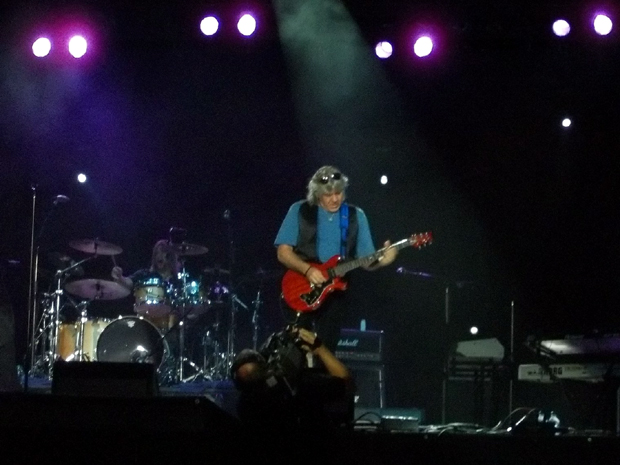
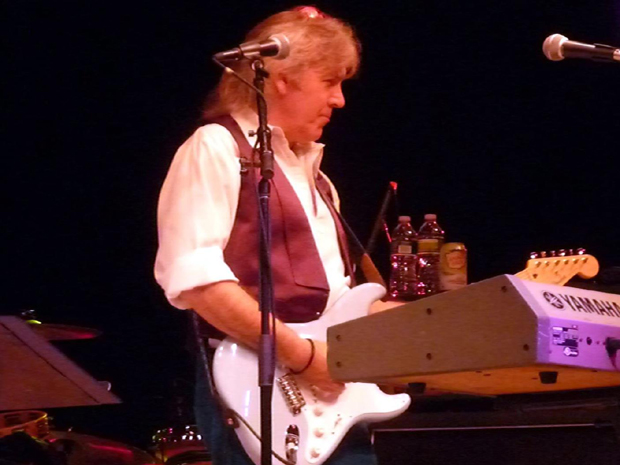
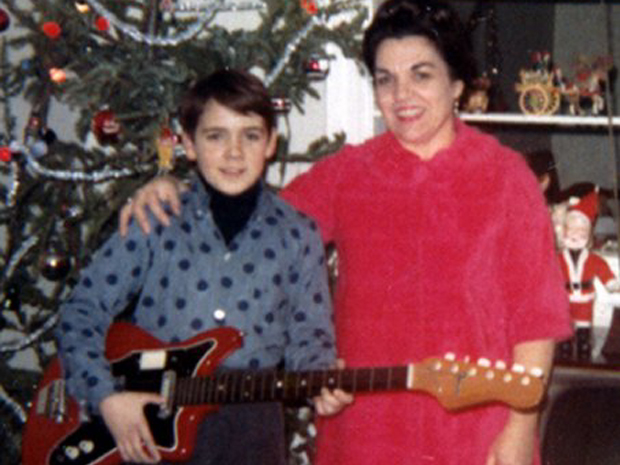
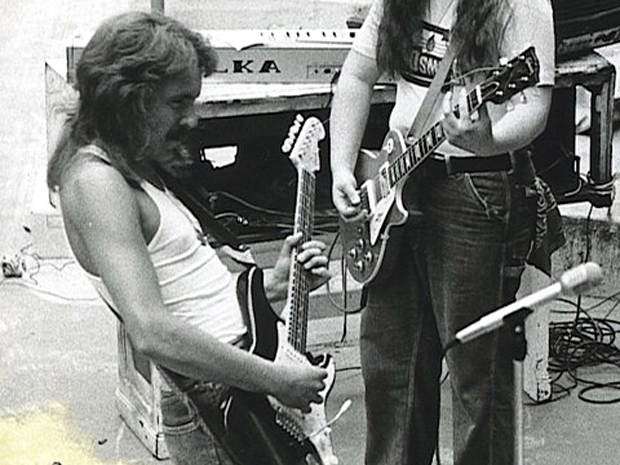
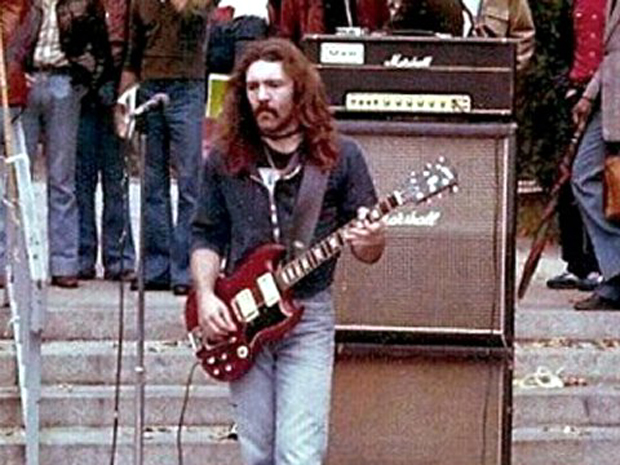
“There’d been three-minute solos, which were just ridiculous – and knackering to play live!” Stoner-doom merchants Sergeant Thunderhoof may have toned down the self-indulgence, but their 10-minute epics still get medieval on your eardrums
“There’s a slight latency in there. You can’t be super-accurate”: Yngwie Malmsteen names the guitar picks that don’t work for shred










